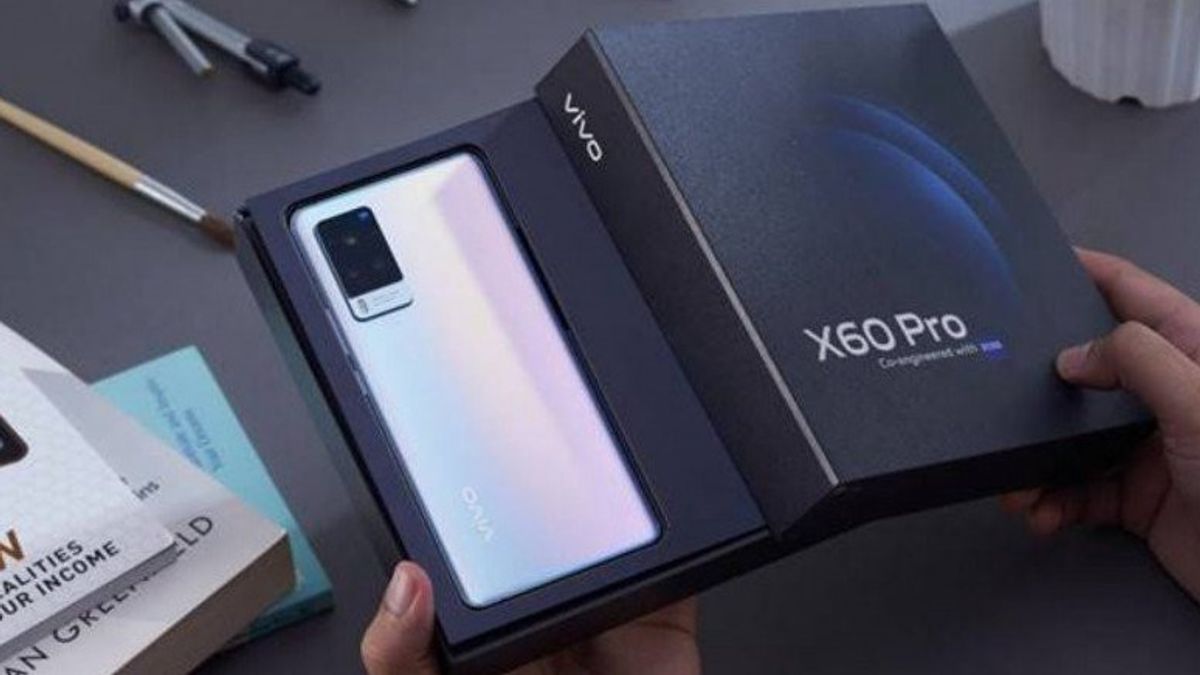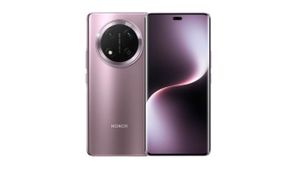JAKARTA - Vivo officially introduced the latest series of the X60 Series in Indonesia. This flagship cellphone consists of the Vivo X60 and X60 Pro which are equipped with Gimbal Stabilization 2.0.
It was explained that the Vivo X60 Series will focus on camera technology to maximize the functions of photography and videography, with a system called the Zeiss Co-engineered Camera System embedded in the collaboration between Vivo and German optical manufacturer ZEISS.
"This is something to be proud of in this product because we are working with ZEISS. As we all know that ZEISS is a leading optical product," said the Senior Brand Director of Vivo Indonesia, Edy Kusuma, Monday, April 5.
Especially in the Vivo X60 Pro series, Vivo has embedded Gimbal Stabilization 2.0 technology in the main camera and is combined with improved OIS technology.
This latest version of the gimbal technology is prepared to create image recording with a better level of stabilization, even when there is shock or recording in motion.
"In the Vivo X60 Pro series, the capabilities of the Gimbal Stabilization 2.0 technology have been enhanced so as to provide clearer, more stable and sharp image recording results in non-ideal image recording conditions, for example during shocks," said Vivo Indonesia Product Manager Hadie Mandala.
Aren't you curious to know more about #vivoX60series? @jokoanwar and @Joe_Taslim are going to reveal a smartphone that will redefine photography. #vivoxZEISS
— vivo_indonesia (@vivo_indonesia) April 3, 2021
Gimbal Stabilization 2.0 technology is also here to provide flexible three-dimensional stabilization, while also featuring an aperture of 1.48 to take in 16 percent more light than its predecessor X-series.
This large aperture is also supported with AI Noise Reduction to produce images in low light, even in complete darkness.
This gimbal technology is also supported by a 13MP 50mm professional portrait capability and a 13MP ultra-wide camera. In addition, there is Pixel Shift Ultra HD Imaging software technology that provides image capture clarity, especially when recording architectural buildings, landscapes, and other objects.
Pixel Shift Ultra HD Imaging technology is claimed to improve the quality of sharpness when recording images are enlarged.
For video recording, Vivo also embeds the 5 Axis VIS image stabilization technology, which is a technology designed to compensate for camera shake when shooting video in moving conditions. With this technology, the video recordings are claimed to be clearer, more stable, and sharper.
"The innovations that make the Gimbal Stabilization 2.0 technology on the Vivo X60 Pro unique are that we have perfected the ability of the camera's lens axis to move to 5 Axis VIS, support for Pixel Shift Ultra HD Imaging, and a large aperture supported by AI Noise Reduction for deep shooting in low light conditions," said Hadie.
"These innovations will provide much more stable camera captures, sharp images, and accurate and richer colors. This is what photography lovers are looking for," he continued.
SEE ALSO:
The Vivo X60 series is powered by the Snapdragon 870 chipset. This chipset is claimed to have a GPU and CPU that is 10 percent better than its predecessor, the Snapdragon 865.
This chipset also supports 5G connectivity. Vivo has its own reasons for bringing 5G connectivity to the X60 Series, even though the network is not yet available in Indonesia until now.
"We believe, we are in the smartphone industry, this technology industry that in the future will be moved towards 5G. With our X60 Series 5G smartphone, if the government is ready, all the infrastructures are ready, all the facilities are ready, then we as Vivo producers will be ready to answer with products that are already 5G," explained Edy.
Consumers can get the Vivo X60 Series through the Blind Pre-Order program exclusively from 4 to 7 April 2021 through Blibli. The official launch of the Vivo X60 and Vivo X60 Pro will be held on Thursday, April 8, 2021.
The English, Chinese, Japanese, Arabic, and French versions are automatically generated by the AI. So there may still be inaccuracies in translating, please always see Indonesian as our main language. (system supported by DigitalSiber.id)

















